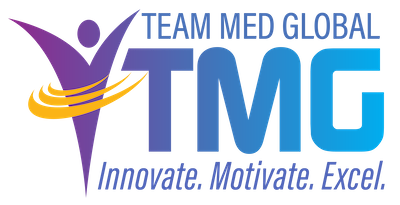 Medical Service Professionals often have Type A personalities. We’re highly organized and proactive – and at times impatient and a bit anxious. It’s understandable that the possibility of losing control over our credentialing process can trigger negative reactions. After all, each hospital and health plan has its own application, its own credentialing process, and its own approval process. But with ever-increasing mergers, acquisitions, and hospital-employed practitioners, the credentialing process now has a direct effect on the bottom line of the organization. That’s when delegated credentialing often enters the picture.
Medical Service Professionals often have Type A personalities. We’re highly organized and proactive – and at times impatient and a bit anxious. It’s understandable that the possibility of losing control over our credentialing process can trigger negative reactions. After all, each hospital and health plan has its own application, its own credentialing process, and its own approval process. But with ever-increasing mergers, acquisitions, and hospital-employed practitioners, the credentialing process now has a direct effect on the bottom line of the organization. That’s when delegated credentialing often enters the picture.
It’s natural for MSPs to be hesitant about or fear the change associated with requests to consider delegation as a solution to staffing issues, practitioner relations, and revenue integrity. But knowledge is power, and knowing more about delegated credentialing allows us to approach the process with an open mind.
Delegation can take on many different forms and each form provides its own benefits to one or more stakeholders. Two immediate benefits of delegation are standardized processes and reduced duplication.
An organization may choose to contractually delegate the credentialing process to an external Credentials Verification Organization (CVO) or an internal/system CVO. With an external CVO, the facility outsources the physical process of collecting the verifications and may be contractually responsible for also managing the collection of the application/reapplication. Once the credentialing process is deemed complete, the file is released to the client. The client then reviews it, obtains additional information, and brings it through the relevant committees for review and approval.
In contrast, the function of an internal/system CVO is determined by the committee structure and the approval process for the health system facilities. Facilities with separate committees and approval processes delegate the credentialing process to an internal CVO and then release the file to each facility for review and approval. Facilities with a system committee structure and a single governing board delegate the verification, review, and approval process to the internal/system CVO.
For a moment, let’s walk in the shoes of the practitioner who is trying to practice medicine in your hospital and your health plan. A hospital or a health plan views the credentialing process in a singular manner: This is what you have to do to work at my hospital and to get access to my health plan network. But for a practitioner to fully accommodate the health needs of their community, that may mean applying to 5 hospitals and 25 health plans. Let’s sit with that for just a moment.
So the practitioner can see patients, utilize hospital facilities, and get paid for serving those patients, it usually requires the work of a full-time employee to manage the credentialing process. For each entity, the credentialing and approval process can take anywhere from 30 to 180 days. Additionally, each entity has its own approval dates and future reappointment/recredentialing dates that the practitioner needs to continually manage.
For the practitioner, credentialing clearly relates to revenue. Hospital credentialing is now being brought into the revenue talks as well. If the hospital is employing practitioners, the health plan enrollment process is usually handled by the hospital as part of the employment contract. Every day the practitioner is not credentialed, money is left on the table. Due to these compounded financial implications, everyone is searching for ways to streamline the credentialing process.
A health plan is allowed to delegate the credentialing process to the following types of entities:
- Hospital or health system
- Physician Hospital Organization (PHO)
- Independent Physician Association (IPA)
- Multispecialty groups
- Specialty groups
An organization that wants to provide credentialing under a delegated credentialing agreement with a health plan needs to meet the following criteria:
- The facility/group contract is in place or being negotiated;
- The number of practitioners is generally 100 or more, although a smaller number can be negotiated if in a rural or needed market for the health plan;
- Credentialing policies and procedures are compliant with managed care standards;
- There is a dedicated peer review credentials committee in place; and
- Primary source verification and sanction monitoring are being conducted in compliance with managed care standards.
Groups interested in delegated credentialing need to undergo a pre-delegation evaluation to determine if the organization’s credentialing process is in compliance with managed care standards. When the credentialing process is deemed compliant, the entities enter into a delegated credentialing agreement that is approved by both entities. Moving forward, the organization submits semiannual reports of their credentialing activity and undergoes an annual delegation oversight audit by the delegator to ensure that compliance is maintained.
The benefits of a delegation arrangement with health plans are seen by both practitioners and the hospitals. The best part of the arrangement for the Type A MSP is that we are able to maintain control of our credentialing process. For everyone involved, delegation reduces duplication, standardizes processes, decreases expenses, synchronizes appointment cycles, and reduces the turnaround time for practitioners to become enrolled in the network. Delegation becomes a win-win proposition with improved practitioner and patient satisfaction, along with a great return on investment.
